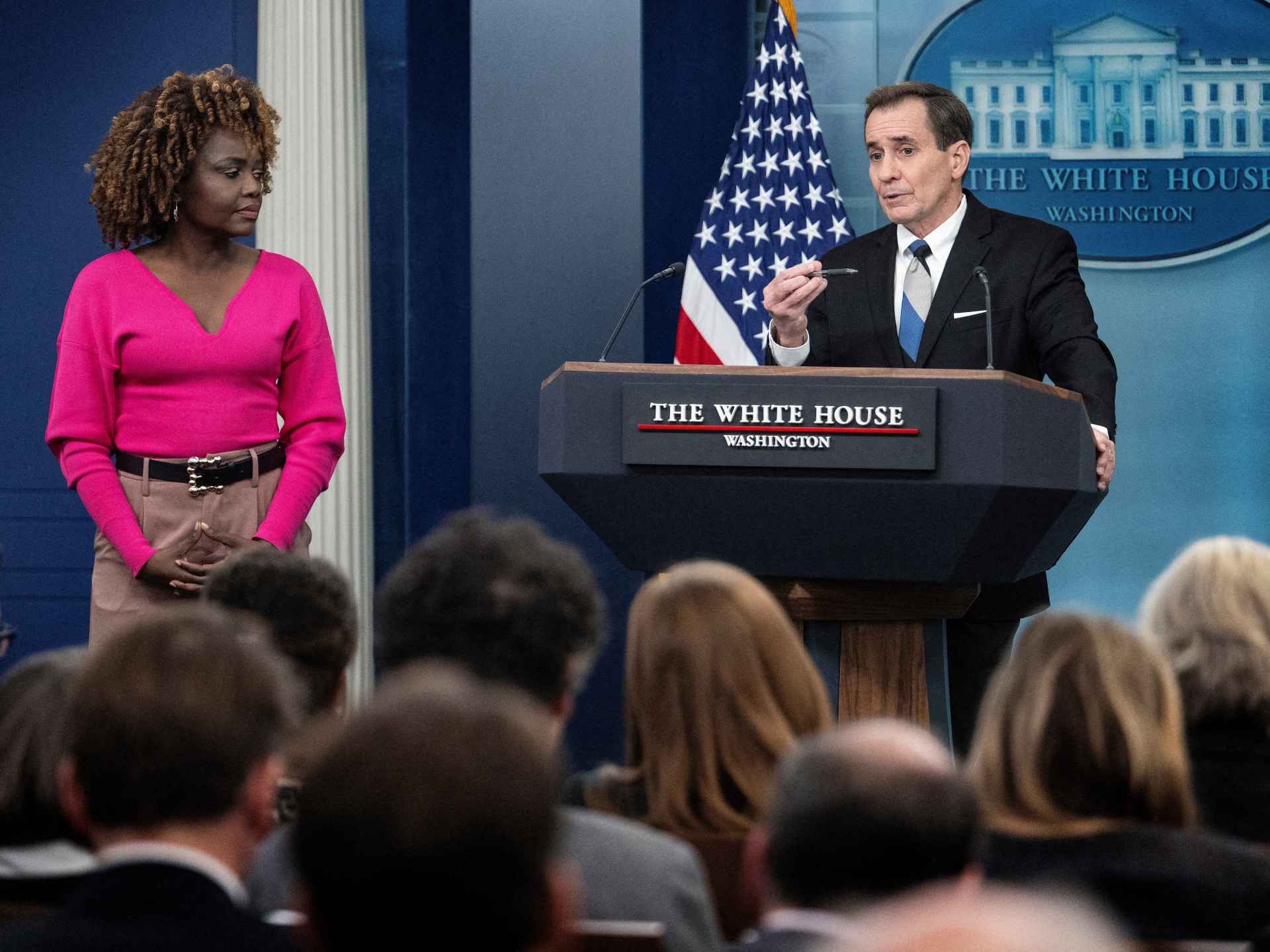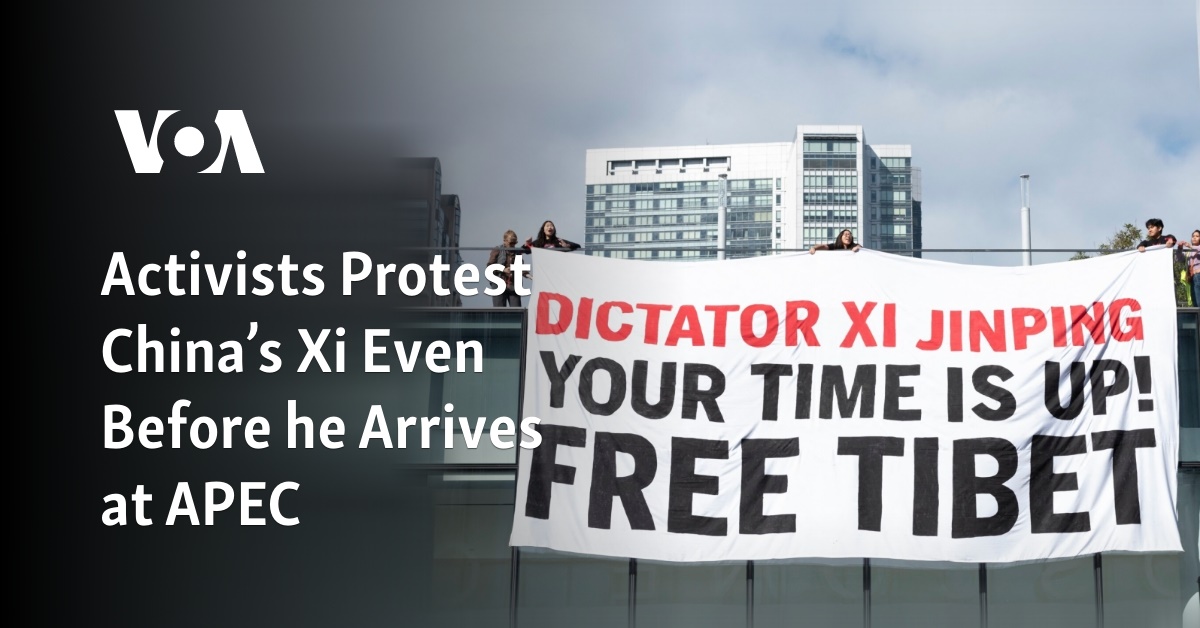
South Africa is facing major changes.
Exactly what this change will look like and whether it will alleviate the many hardships facing South Africans remains the million-dollar question.
The African National Congress (ANC), which has ruled with a sizeable majority since the advent of democracy in South Africa in 1994, received only about 40 percent of the vote in last week's election. The poor result means it is now negotiating with rival parties about a possible government formation.
“I wonder what decisions they will make in their desperation,” said Bhekindlela Cebekhulu, 40, a theater actress in Soweto.
Will South Africa soon have a white president or will parties promoting socialism take over his house, asked Cebekhulu, who said he voted for the ANC after standing in line for over an hour. He is most concerned about former President Jacob Zuma's threats to change the constitution.
The country's highest legislative body, the National Assembly, must meet and elect a president within two weeks of the official announcement of the election results on Sunday.
African National Congress officials have said they want their leader, President Cyril Ramaphosa, to remain in office for a second term. Ramaphosa's fate is likely to depend on the negotiations.
South Africa appears to face two challenges.
The election result could prompt the African National Congress and its successor in government to tackle the country's poverty, unemployment, crime and inequality more forcefully – or lose even more support. Or political polarisation and disputes could deepen, leaving little to be done to address the problems.
The new government should at least take “steps in the right direction,” said Hlengiwe Ndlovu, a lecturer in government at the University of the Witwatersrand in Johannesburg. But if political dysfunction occurs, the country could “sink into chaos, violence and a state of collapse,” she added.
Here are the key figures shaping South Africa's future and the influence they could have.
Cyril Ramaphosa and the African National Congress
The biggest question for 71-year-old Ramaphosa and his party is which solution they would prefer. All of these solutions carry risks.
They could join forces with the Democratic Alliance, but this could isolate some of their key supporters in the black townships and rural communities, as the Democratic Alliance strongly opposes policies that favor blacks in employment and property.
Another possibility is that the African National Congress reunites with Zuma, who previously led the party but helped form a new party that contested his former allies in this election. But Zuma's return to the party could undermine the ANC's commitment to rooting out the corruption that has been endemic to it for years. Zuma, a sworn enemy of his former deputy Ramaphosa, was Forced to resign in 2018 because of damning corruption allegations.
The party could also turn to another former member, Julius Malema, who was a fiery youth leader before taking office. expelled him. Mr Malema founded the Economic Freedom Fighters, an opposition party, a decade ago. Although Mr Malema's socialist stance is supported by some within the African National Congress, it could push the party in a direction it does not want to go.
There is the option of simply ruling as a minority government, meaning the ANC would negotiate with the other parties on a case-by-case basis. Some have also suggested forming a “government of national unity” with all parties in Parliament participating.
All options are open, said Fikile Mbalula, the party's general secretary, on Sunday. However, the party will not be forced into a bad deal, he said: “We talk, but we don't beg.”
John Steenhuisen and the Democratic Alliance
The Democratic Alliance has been one of the ANC's harshest critics, personally insulting its members and suing the ANC over some of the laws it has passed.
Led by Mr Steenhuisen, a 48-year-old white man, the party eschewed a more diverse leadership when it lost the votes of white conservatives and turned to some issues championed by some on the far right – issuing a press release regretting without evidence: a “strong increase” was involved in the murders of farmers and campaigned for the continued use of the Afrikaans language at Stellenbosch University.
Still, a coalition between the Democratic Alliance and the ANC would make sense in some ways. The party received nearly 22 percent of the vote, making it the second-largest party. The current ANC leadership generally embraces a centrist approach to economics similar to that of the Democratic Alliance. Big business would likely welcome this coalition. Analysts say this partnership would likely protect and strengthen state institutions. And the Democratic Alliance has a good track record of running functioning governance in the Western Cape, the fourth-largest province, and could serve as a check on government corruption, analysts say.
The parties could clash over measures to address racial disparities that remain from apartheid and over foreign policy. The Democratic Alliance strongly supports Western allies. The African National Congress has stressed the importance of the West but also promotes strong partnerships with countries such as China, Russia and Iran.
Tony Leon, a former Democratic Alliance leader who is part of the team leading coalition negotiations for the party, said their voters would overcome their reservations about the ANC if they believed it would produce a more workable government. They would also want to keep Mr Zuma and Mr Malema's parties out of power because they advocate left-wing economic policies.
“I can absolutely guarantee that 80 percent, maybe more, of DA voters would say, 'Make a reasonable agreement with the ANC,'” he said.
Such a deal could mean reaching a compromise on key areas of the ANC. One of the Democratic Alliance's key priorities is to end “cadre distribution,” the policy of putting party members in key positions even if they do not have the necessary qualifications. The Democratic Alliance has also promised, according to its manifesto, to abolish affirmative action “because it has only enriched a small, well-connected elite.”
Jacob Zuma and MK
Zuma's party, umKhonto weSizwe (MK), was founded just six months ago and was the biggest poll-spoiler, coming in third place and receiving almost 15 percent of the vote – more than ever before for a newly formed party.
MK represents a rigid program: all land should be placed under state control without compensation; the current constitution should be abolished; the leaders of traditional ethnic groups should be given a seat in parliament; the energy transition should be pushed back in favor of coal and nuclear power.
However, many analysts say that the 82-year-old Zuma seems less interested in politics and more interested in punishing Ramaphosa and his party. Although Zuma leads the MK, he was recently excluded from parliamentary activity because of a criminal conviction for failing to testify before a corruption investigation – an accusation that he believed was politically motivated by the Ramaphosa government.
Some political analysts and rival politicians say Zuma also wants access to state power to resolve some of his legal problems. He faces corruption charges stemming from an arms deal dating back to his time as vice president about two decades ago.
MK officials are already demanding Mr Ramaphosa's resignation as a precondition for any coalition agreement – a demand that the African National Congress has so far resisted.
Analysts fear that a merger of the two parties would essentially lead to a return to the factionalism and corruption that have rendered the ANC incapable of governing.
Voters “expect a better approach, they expect better implementation of current policies,” says Ebrahim Fakir, election analyst at the Electoral Institute for Sustainable Democracy in Africa.
Julius Malema and the fighters for economic freedom
Malema has toned down his rhetoric in some ways but is no less bold in his demands. Last week he laid out what he would demand of his coalition partners: land expropriation without compensation within six months, the creation of a state-owned bank and cancellation of student debt within 12 months, free water and electricity for all welfare recipients and a partner that would not be “a puppet or proxy of the West's imperialist agenda”.
But the 43-year-old party leader has lost influence due to his party's disappointing election results. Since the last election in 2019, its support has fallen by about one percentage point to around 9.5 percent.
However, as a former ANC member, he has allies within the organisation, and his political approach resonates with a faction within the party that believes the current leadership has not been aggressive enough in tackling the economic inequalities suffered by black South Africans.
While investors might initially be shocked by a partnership between the ANC and the Economic Freedom Fighters due to Malema's left-wing stance, those concerns are overblown, Fakir said. This alliance would not lead to the more drastic changes Malema seeks, Fakir said.
Instead, there could be an “intensification of the current welfare state,” he said. The parties would likely negotiate something similar to the Reconstruction and Development Programme, a public spending programme adopted towards the end of apartheid that was “a slightly more radical Marshall Plan,” Fakir said.






Recent Comments